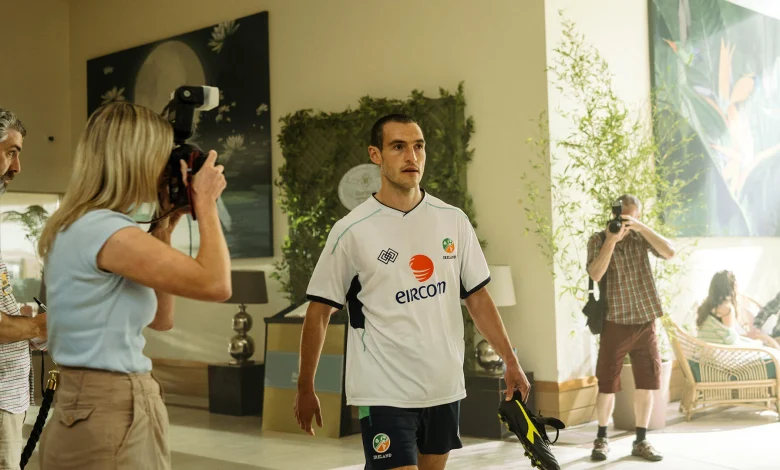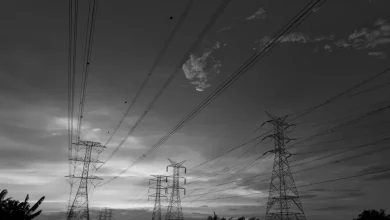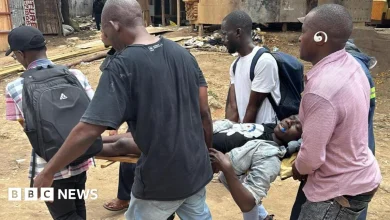Irish Film Festival London 2025: Saipan

Writer: Paul Fraser
Directors: Glenn Leyburn and Lisa Barros D’Sa
In 2002, Ireland’s football captain walked away from his World Cup team less than two weeks before the tournament began and refused to return. The team under manager Mick McCarthy were in Saipan close to Japan preparing for the event in Tokyo and this is the story of why Roy Keane, then one of the UK and Ireland’s most famous players, left the national side. Not entirely sure quite where it wants to land on Keane’s decision or personality, Paul Fraser’s narrative film screening at the Irish Film Festival London 2025 rather peters out in its final phase, the equivalent of a no score draw.
Frustrated by the poor quality hotel, the lack of facilities and amazingly no footballs at all, Roy Keane returns from injury to captain Ireland’s football team who scraped into the World Cup without him. But the lack of professionalism among the squad who spend their pre-match period sunbathing, drinking and partying, irritates the dedicated and clean living Manchester United player who keeps himself away from his team. But he is soon drawn into a series of fights with Ireland’s manager that build to a dramatic and decisive confrontation for both men.
Fraser’s film, directed by Glenn Leyburn and Lisa Barros D’Sa, unusually begins with video footage of the real Roy Keane in action, part of a series of montages that punctuate the movie, mixing news and other filmed footage taken from the early 2000s showing both football matches and fans anticipating the World Cup as well as popular culture moments that anchor Keane’s story in a particular timeline. Arguably, these are rather overused, consuming valuable time in a 90-minute film that could be better spent on character and narrative development rather than assuming that viewer will automatically know and therefore invest in this man-against-the-odds approach.
And its not unsuccessful in that, showing the underwhelming venue the team find themselves in at Saipan with a rocky training pitch and little organised thinking, all presented as a visual metaphor in the air conditioning unit in Keane’s room that is rusted and dirty, barely spluttering to life. That Keane is a different level of footballer is clear from the many shots of separation that Leyburn and Barros D’Sa choose, placing him at a continual distance from everyone else, either overlooking scenes of excess from his hotel balcony or alone at breakfast, scowling at the fly-ridden white bread sandwiches on offer.
For most of the film is seems the creative team suggest Keane’s heroism, a professional athlete ahead of his time maybe but in the last 30-minutes they retract from condemning the whole Irish team and starts to play Keane as a loose cannon, a disrupter with anger issues as he was portrayed in the millennial media, and it becomes harder to grasp what formation is being played in Saipan.
There are solid performances from Éanna Hardwicke as Keane and Steve Coogan as McCarthy whose ineffectualness is balanced against almost steely refusal to give Keane what he wants. The reasons for this or even for Keane’s behaviour are never fully investigated and Saipan would be considerably stronger for having some longer duologue and discussions between the two to try and really get under the skin of this relationship and why it broke down.
The film assumes a level of pre-knowledge that thanks to the reach of plays like Dear England that brought non-football fans to these stories, and Saipan forgets that some of its audience may need a little more substance to make this story dramatically and cinematically interesting.
Saipan is screening at the Irish Film Festival London 2025.





